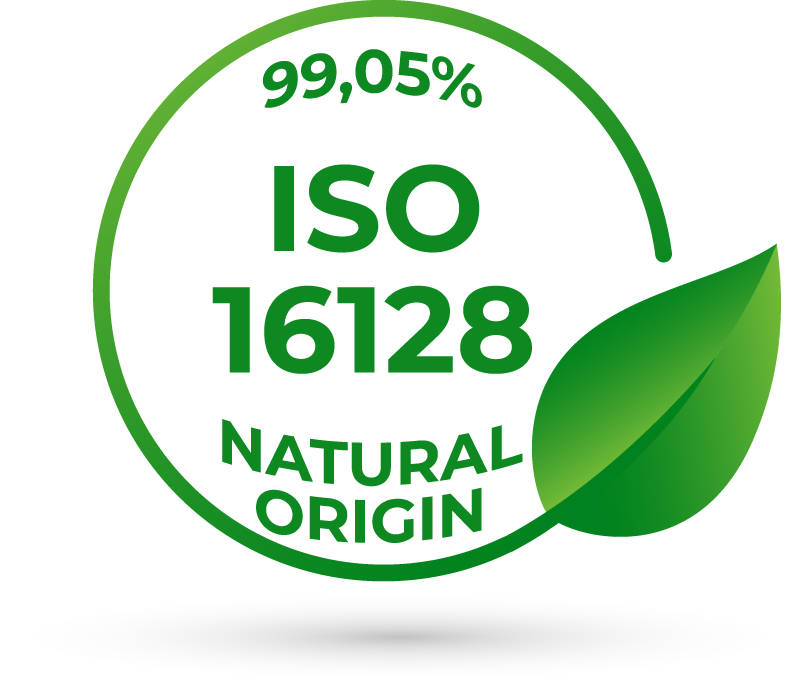Fluoride in toothpaste: the miracle cure for bright white and healthy teeth

Fluoride in toothpaste
A radiant smile is not only an aesthetic feature, but also an indicator of general oral health. When it comes to taking care of our teeth, fluoride plays a crucial role. In this article, we will take a closer look at this fascinating mineral and explain why it can be found in almost every toothpaste.
What is fluoride?
Fluoride is a naturally occurring element that is widely distributed in the earth’s crust. It has been shown to be extremely effective in preventing tooth decay and strengthening tooth enamel. Most people are probably familiar with fluoride primarily in connection with toothpaste, but it is also found in drinking water, certain foods and even in the air.
Why is fluoride important for our teeth?
Fluoride plays a crucial role in dental health for several reasons:
- Caries prevention: Fluoride is a true caries warrior. It strengthens tooth enamel, the outermost protective layer of our teeth, and makes it more resistant to the harmful acid attacks caused by the activity of oral bacteria. These acids are one of the main causes of tooth decay, as they gradually break down the enamel and leave holes in the teeth. Fluoride has the amazing ability to solidify and harden the mineral structure of enamel, providing teeth with a better defense against decay.
- Remineralization: Fluoride is not only a protective shield, but also a miracle cure for repairing already damaged tooth surfaces. If caries lesions are detected at an early stage, fluoride can help to remineralize the enamel. This means that the lost mineral content of the teeth can be restored to some extent, helping to halt the progressive damage and strengthen the tissue. This is particularly important as tooth decay, if left untreated, can penetrate deeper into the tooth and lead to painful infections.
- Bacteria control: The oral cavity is a microbial biotope in which numerous types of bacteria exist. Some of these bacteria are responsible for acid production, which damages tooth enamel. Fluoride can reduce the activity of these harmful bacteria and thus reduce the risk of tooth decay. By controlling the bacterial population in the mouth, fluoride helps to balance the oral flora, which in turn leads to better dental health.
How does fluoride in tooth cream work?
Toothpastes with fluoride work by applying the fluoride directly to your teeth. When you brush your teeth, a thin film of fluoride forms around your teeth.
This film strengthens the enamel and helps to protect the teeth from acid attacks. Dentists recommend brushing your teeth at least twice a day with a fluoride tooth cream for optimal results.
Are there any risks or concerns associated with fluoride?
- Fluorosis: One of the main disadvantages of overexposure to fluoride is the development of fluorosis. This is a cosmetic disorder that manifests as visible discoloration and stains on the teeth. In most cases, this occurs when fluoride is ingested in large quantities during tooth formation in childhood. This is often due to the excessive use of fluoride toothpastes and mouthwashes. Although fluorosis is not usually harmful to health, it can affect the aesthetic appearance of teeth and can be distressing for some people.
- Toxic effects from excessive consumption: Ingesting large amounts of fluoride can lead to more serious health problems. However, this is rare and usually occurs when fluoride is ingested in unusually high doses. Symptoms of fluoride poisoning can include nausea, vomiting, stomach pain and in severe cases even seizures and cardiac arrhythmias. It is important to note that the normal use of fluoride toothpastes and mouthwashes does not usually cause such problems.
- Environmental impact: Another disadvantage that has received increased attention in recent years is the potential environmental impact of fluoride. This mainly concerns the disposal of fluoride from wastewater and industrial waste. High concentrations of fluoride can have a negative impact on aquatic ecosystems and be harmful to aquatic life. It is therefore important that fluoride concentrations in wastewater are controlled and regulated to minimize the environmental impact.
Overall, the disadvantages of fluoride are usually due to excessive or improper use. When used properly and in the recommended doses, the potential risks are usually minimal and the benefits for dental health outweigh the risks. Nevertheless, it is advisable to monitor the use of fluoride-containing products and seek advice from a dentist if necessary to avoid undesirable consequences.
Conclusion: Fluoride in toothpaste – an invaluable aid for your dental health
Fluoride in tooth cream is a proven way to prevent tooth decay and maintain your overall oral health. Regular brushing with fluoride toothpaste, in combination with a balanced diet and regular visits to the dentist, is the foundation for a bright smile and strong, healthy teeth. So rest assured that fluoride in the right amount in your toothpaste is a friend to your teeth and will help you keep your smile.









